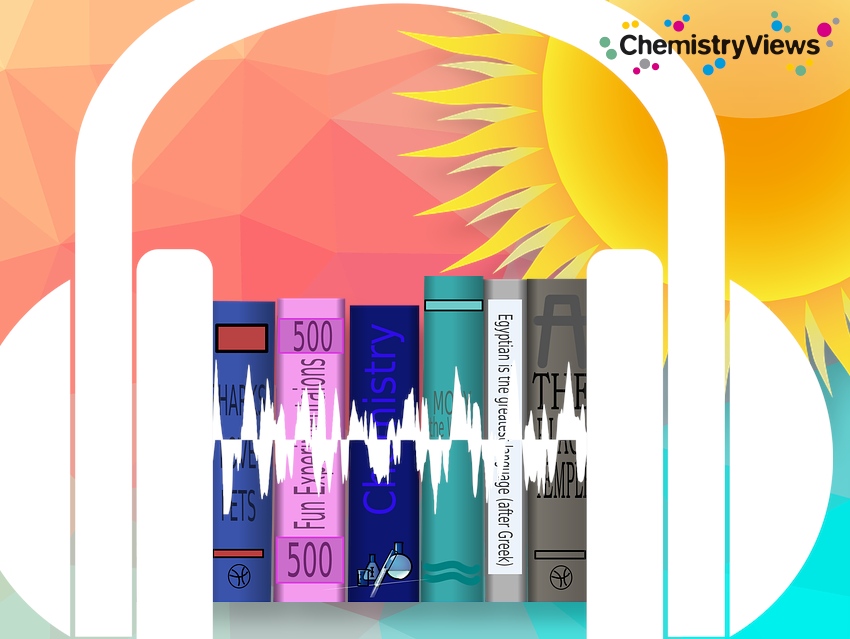Summer is the perfect time to have some fun with science-related books, podcasts, and videos. ChemistryViews has collected recommendations from editors.
You can add your own recommendations in the comments section below.
Books
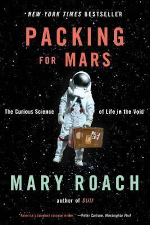 |
Packing for Mars: The Curious Science of Life in the Void and Packing for Mars for Kids With these entertaining books, which explore the strange universe of space travel, the entire family can be prepared for daily life away from planet Earth—including the cat. (suggested by Matteo Cavalleri, Associate Editorial Director)
|
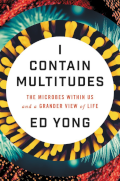 |
I Contain Multitudes: The Microbes Within Us and a Grander View of Life This book prompts the reader to look at themselves and their microbiome as an interconnected and interdependent partnership. (suggested by Scott D. Williams, ChemMedChem and ChemistrySelect)
|
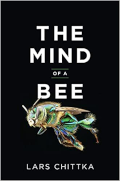 |
The Mind of a Bee This book looks at the mind-blowing abilities of individual bees, which forms the foundation for their equally mind-blowing collective behavior. (suggested by Greta Heydenrych, now Executive Director at IUPAC)
|
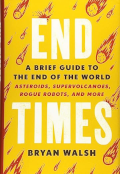 |
End Times: A Brief Guide to the End of the World This book examines humanity’s most dangerous mistakes and explores how we can protect and future-proof our civilization. (suggested by Xin Su, Angewandte Chemie)
|
 |
Chemistry for Breakfast: The Amazing Science of Everyday Life This book explains essential chemical processes everyone should know—and turns the ordinary into the extraordinary. (suggested by Vera Koester, ChemistryViews)
|
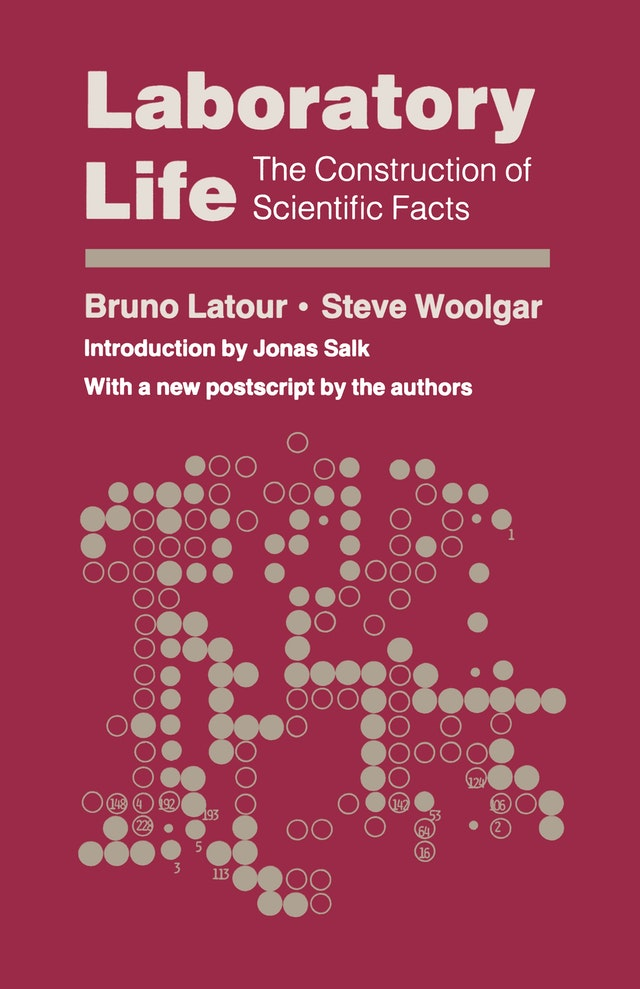 |
Laboratory Life: The Construction of Scientific Facts This book provides an anthropological look at the culture of the scientist and how the laboratory as a social construct produces papers rather than scientific facts. (suggested by Matteo Cavalleri, Associate Editorial Director)
|
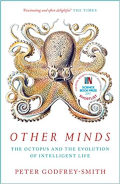 |
Other Minds: The Octopus and the Evolution of Intelligent Life This book describes how intelligence could have evolved and that it is much more diverse than we as humans can probably comprehend and observe. For example, the octopus with its highly delocalized central nervous system displays a completely different intelligence from that of vertebrates. (suggested by Greta Heydenrych, now Executive Director at IUPAC)
|
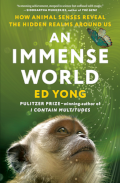 |
An Immense World: How Animal Senses Reveal the Hidden Realms Around Us This book provides a view into the hidden realms of animal senses and explains how they perceive the world. (suggested by Scott D. Williams, ChemMedChem and ChemistrySelect)
|
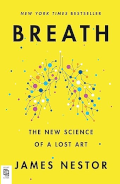 |
Breath: The New Science of a Lost Art This book shows how extraordinary the act of breathing is and turns the conventional wisdom of what we thought we knew about our most basic biological function on its head. (suggested by Vera Koester, ChemistryViews)
|
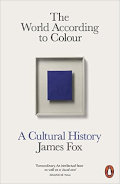 |
The World According to Colour: A Cultural History This book has an interesting take on the way colors have influenced our perception and views of the world, as well as their great cultural impact. It also contains a bit of chemistry. (suggested by Greta Heydenrych, now Executive Director at IUPAC)
|
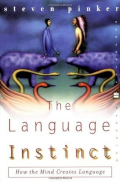 |
The Language Instinct: How the Mind Creates Language This book explains everything about language: How it works, how children learn it, how it changes, how the brain computes it, and how it has evolved. (suggested by Matteo Cavalleri, Associate Editorial Director)
|
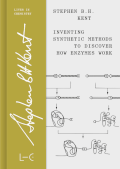 |
Stephen B. H. Kent: Inventing Synthetic Methods to Discover How Enzymes Work This autobiography provides insights into the life and thoughts of Stephen B. H. Kent, who solved one of the grand challenges of chemistry: the total synthesis of protein molecules. (suggested by Eva E. Wille)
|
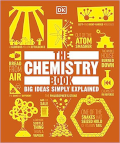 |
The Chemistry Book: Big Ideas Simply Explained This book features simply-written, short explanations with simple graphics on some of the most historic moments and key concepts in chemistry, as well as some formative scientists such as Marie Curie, Percy Julian, and Akira Suzuki—nice as a gift and for browsing with non-chemists and older children. (suggested by Vera Koester, ChemistryViews)
|
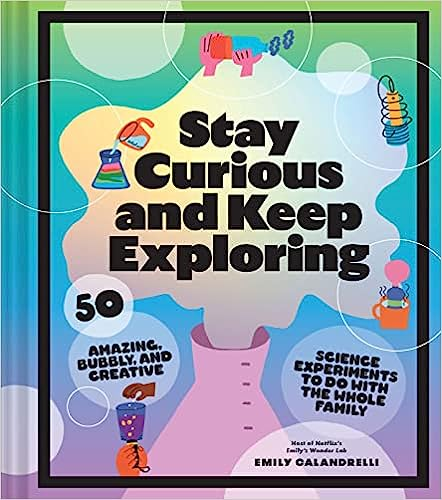 |
Stay Curious and Keep Exploring: 50 Amazing, Bubbly, and Creative Science Experiments to Do with the Whole Family This book features home experiments that introduce the wonders of science to the whole family. (suggested by Rosalba A. Rincón, Chemistry – A European Journal)
|
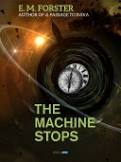 |
The Machine Stops In this science fiction short story from 1909, people rely on a machine to provide their livelihood and satisfy their needs. It describes technologies similar to instant messaging and the internet. (suggested by Vera Koester, ChemistryViews)
|
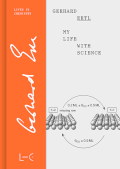 |
Gerhard Ertl: My Life with Science This autobiography provides insights into the life and thoughts of Gerhard Ertl, who discovered the mechanisms and kinetics of ammonia synthesis and CO oxidation at an atomic level. (suggested by Eva E. Wille)
|
Podcasts
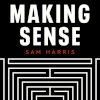 |
Making Sense with Sam Harris This podcast explores important and controversial questions about the mind, society, current events, moral philosophy, religion, and rationality. (suggested by Scott D. Williams, ChemMedChem and ChemistrySelect)
|
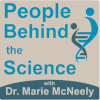 |
People Behind the Science This podcast focuses on the people doing fascinating research through interviews with top scientists. In each episode, a different scientist shares their successes, failures, and passions. (suggested by Rachel Schmidt-Radde, Angewandte Chemie)
|
 |
Lex Fridman Podcast This podcast features conversations about science, technology, history, philosophy, and the nature of intelligence, consciousness, love, and power with an AI researcher. (suggested by Scott D. Williams, ChemMedChem and ChemistrySelect)
|
Videos
 |
This channel features science aimed at young elementary school kids (grades 1–3). Fun, hands-on, engaging, and very well explained. (suggested by Matteo Cavalleri, Associate Editorial Director)
|
 |
This channel aims to spark curiosity about science and the world we live in by explaining things with animation videos. (suggested by Charlotte Gers-Panther, ChemCatChem)
|
 |
This channel features an MIT engineer turned science communicator, aiming to make science and space feel more welcoming to more people. (suggested by Rosalba A. Rincón, Chemistry – A European Journal)
|
Also of Interest
- Science for the Summer 2022
- Science for the Summer 2021
- Science for the Summer 2020
- Science for the Summer 2019
